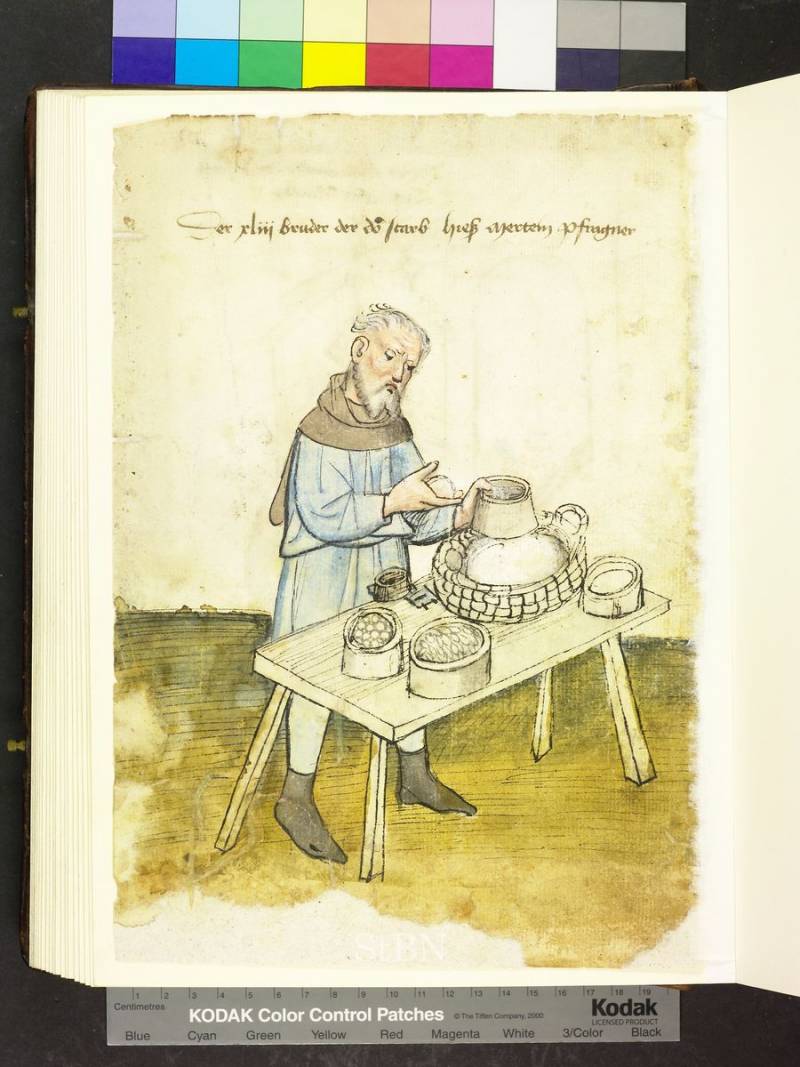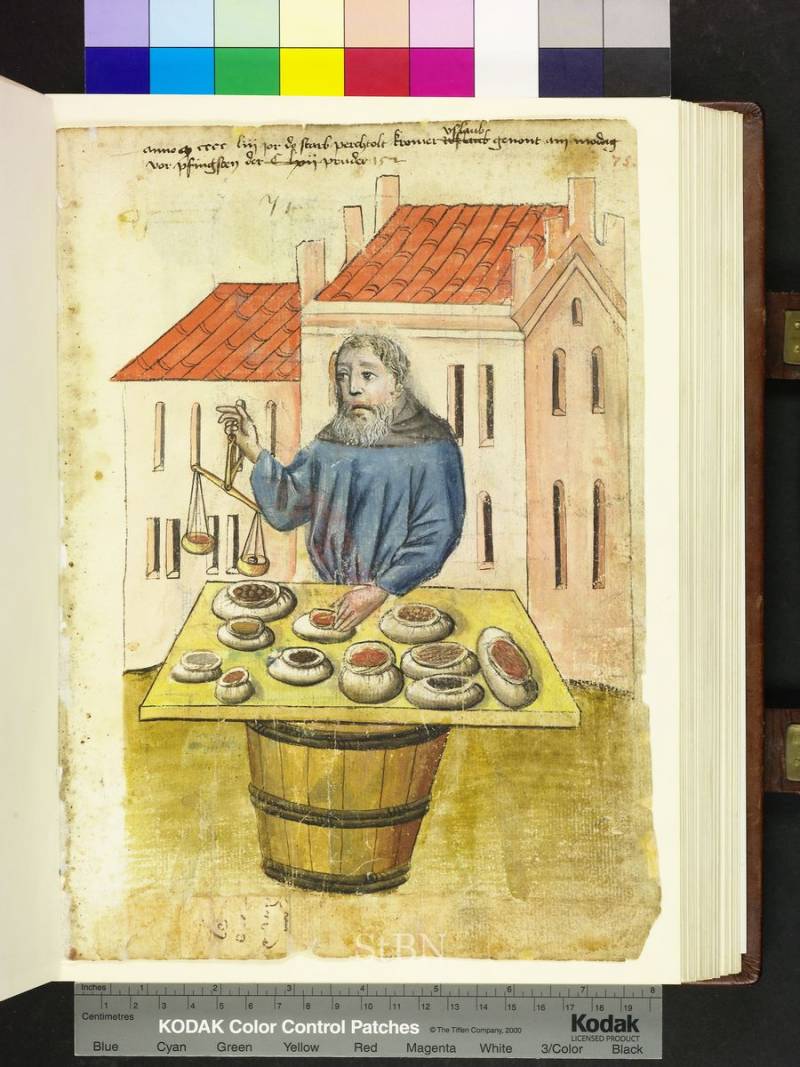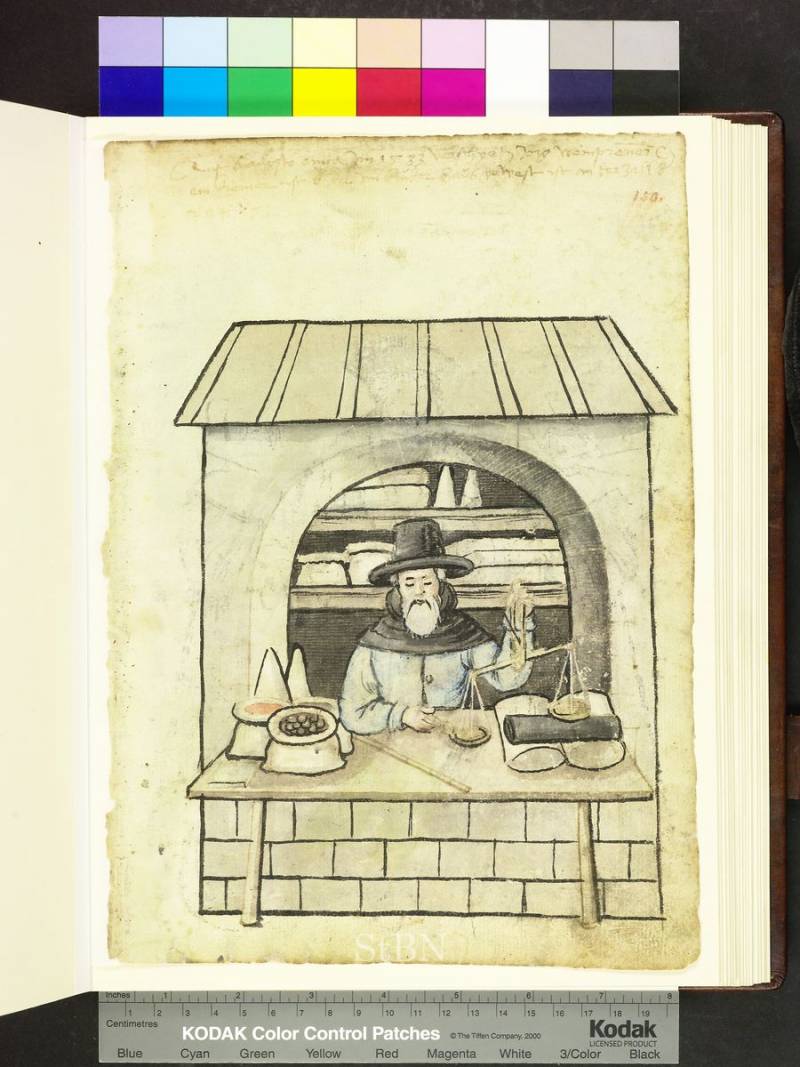"Spicy Middle Ages"

Here they are - dogheads, lords of the places where black pepper was mined. Illustration from the manuscript "Livre des merveilles de Marco Polo" (The Book of Miracles of Marco Polo), 1410. Gallica Library
Proverbs of Solomon 9:2
stories by stories Middle Ages. Today we will talk about one interesting addiction of the people of the Middle Ages, namely the addiction to caustic and spicy spices, which seems to be well known to everyone for a long time and which is written in almost every book that tells about the culture of that time. Well, how can we not mention that a rich man was called a “bag of pepper”, and that spices were then worth their weight in gold. And why not write that the reason for this was that ... people ate everything rotten, and especially stale meat, and therefore tried to beat off the unpleasant smell with the help of spices. But... was it really so?
In one of the previous materials of this series, we already wrote that people of the medieval era were not stupid at all and were perfectly able to keep food fresh. But the myth still roams from one popular science publication to another, as if our ancestors were forced to eat rotten meat, and spices in food helped beat off the smell of rotten meat. How Europeans did not die out from food poisoning in such a diet is not clear. Another version of the myth is that the meat was salted, and everyone ate corned beef, from the beggar to the king, that's why its annoying taste was hammered with an unmeasured amount of pepper.
Saint Aldhelm, Bishop of Sherborne, England, wrote about black pepper as follows in the XNUMXth century:
Meanwhile, in the same material, we reported that they knew how to store meat on glaciers since ancient times. That in the Middle Ages there were glaciers - cellars filled with ice, and the harsh winters of 1315-1317, and even later happened more than once, completely allowed meat to be frozen “outside the window”, as economical housewives do today. Well, it was not difficult to get fresh meat almost daily at that time: here wild boars roam, here deer, here rabbits jumped, hunting for cabbage - in a word, went, killed, caught, skinned and eat. And since the same nobility sat down to feast in very crowded gatherings, there was no question of whether there would be anything left of the same whole roasted wild boar or not. So our medieval ancestors got along just fine without a refrigerator, as well as without a TV, a computer ... and they didn’t grieve themselves!

Brother Martin, petty grocer. In an illustration from The Book of the Twelve Brothers, he is standing at his desk and holding a container in his hand, which is probably used to measure bulk goods, the white color of which indicates salt. A basket with handles and various vessels with grains or nuts are laid out on the table. But he obviously does not sell spices. They just don't fit him. 1425. (Amb. 317.2° Folio 19 verso (Mendel I))
True, the novelist Stefan Zweig argued that since the food of European medieval man was at that time very insipid and monotonous in taste, the only way to improve its taste was Indian and Malay spices. But again, is this really true?
After all, Europe is by no means deprived of excellent aromatic herbs, and vegetables too: onions and garlic grew in any garden, in the South of France, lemons were used to acidify food (which in the north was replaced by bitter orange - orange), and saffron grew in castle gardens - in a word , Europeans had something to spice up their food.
But then where did they get such a strong addiction to Indian and African hot spices, why did they become an integral part of European medieval cuisine?
Indeed, if we tried the dishes of medieval France, they would most likely remind us of Mexican cuisine, but not of European cuisine. That is, there is no doubt that then people had a passion for spicy, caustic, sour and everything that smelled sharp and spicy. Meat in the literal sense of the word was drowned in pepper sauce, ginger was added to both beer and wine, chicken had to be sprinkled with saffron and not spared, so that it acquired a bright orange-yellow color. So when modern chefs tried to cook according to the recipes of that time, they first of all had to reduce the amount of spices in the dishes, otherwise these medieval dishes would simply seem inedible to us.

Brother Berthold, spice merchant. Shown in an illustration from The Book of the Twelve Brothers standing behind his counter, spread out on a large barrel. In his right hand he holds an apothecary's scale, with which he weighs the spices lying in bags on the table. 1453. (Amb. 317.2° Folio 75 recto (Mendel I))
The fact is that spices came to Europe from the Moluccas, through India, Arabia and further through Venice and Genoa. Ginger, cloves, black pepper and cinnamon were delivered along this route. It turns out that every grain of pepper and every bud of a clove tree needed to cross the Indian Ocean, the Red Sea, then, together with a caravan of camels, cross the Arabian Desert, then the Mediterranean Sea, and then travel on mules for weeks on European soil. And here, too, merchants had a hard time: robbers in the forests, “traffic law”, “bridge law”, “what fell from the cart is gone” - in a word, it was a real feat to carry spices to Europe, and, like any feat " , it was rated accordingly. It took at least three years for the crop of pepper, cinnamon and ginger grown in the East to reach Europe. It is easy to calculate that on this way, each bag of spices was subjected to various taxes no less than ten or twelve times. As a result, the price of all these spices in Europe rose to sky-high heights, and only grew over the years. Pepper and cloves were weighed on jewelry scales and indoors, so that, God forbid, not a single particle would be blown away by a draft. That is, the one who at least occasionally ate spices rose in his own eyes and in the eyes of those around him as high as one can only imagine.

Jörg Weinreiner, also a brother and also a grocer. His shop is brick, with a boarded roof. Hand scales are used to measure the product. You can see different bags, two loaves, bales of cloth and a measuring cubit, which are laid out on the counter. And here on the left are two sugar loaves. Other sacks of merchandise and stacks of fabrics are stacked on the shelves at the back. 1533. (Amb. 317.2° Folio 150 recto (Mendel I))
Well, and then, in fact, and pepper, and cloves, and ginger have a pronounced medicinal effect. Clove buds are a very strong antiseptic, and there were not enough antiseptics in the Middle Ages. It was enough to chew a couple of kidneys to cure a sore throat. Ginger is known to cleanse the blood and eliminate putrefactive processes in the intestines. Nutmeg eliminates bad breath, and this sad phenomenon, as a result of bad teeth in the vast majority of the population, was very common at that time. In a word, all these spices also played the role of modern dietary supplements, without which people of that era, and first of all to know, would get sick incomparably more often.
However, this is not enough. We should not forget about the religious worldview of that era. According to the concepts of medieval people, the divine paradise was located precisely in India (or its environs). Therefore, it was believed that the spices that grew in those parts are saturated with the emanations of paradise, and the water that feeds them flows directly from Eden. It was quite seriously stated that the pepper ripens in the nests of snakes that protect it from people. Therefore, they get it like this: they set fire to the nest, the snakes crawl away in fear, but initially the white pepper turns black from the heat!
Add here dog-headed, gold-bearing ants, people with one ear in which they wrap themselves like a blanket, one-legged jumping people and all other miracles then known to everyone and everyone, and it becomes clear that anyone who ate pepper, joined in what - something so high that it simply could not be higher, and experienced real ecstasy! Well, it was exactly the same as it happens when our modern man gets into a Rolls-Royce, a Silver Shadow, or a Boat Tail, a Lamborghini, or an Aston Martin.

Dietrich Weiss. Two hundred years have passed, and the appearance of the grocer has changed in the most striking way. So, Weiss is depicted in a jacket with many buttons, a cape and a white collar, standing behind the counter with a notebook in his hand. On the counter are bales of red and brown cloth, a hat, and a skein of cord. Items for sale are displayed behind the counter: sacks of nuts, ropes, and various items packed in colorful boxes. Here involuntarily I want to approach this and at least buy something from him. 1620. (Amb. 279.2° Folio 91 verso (Landauer I))
Summarizing all of the above once again, we note that spices in the Middle Ages were not so much (and not only) “outlandish”, but also extremely prestigious goods, and the very possibility of using them spoke of the wealth and high position of the owner of the house, and his involvement in the highest the values of that time. Spices became a symbol of the era and remained so until the beginning of the Great Geographical Discoveries, when the Portuguese travels to India finally dispelled the centuries-old legends about the origin of all the same pepper. Accordingly, these travels caused a catastrophic drop in the price of spices, added new ones to them, that is, turned them into the most ordinary seasonings for the kitchen table, in which quality they are known to us today.
Information